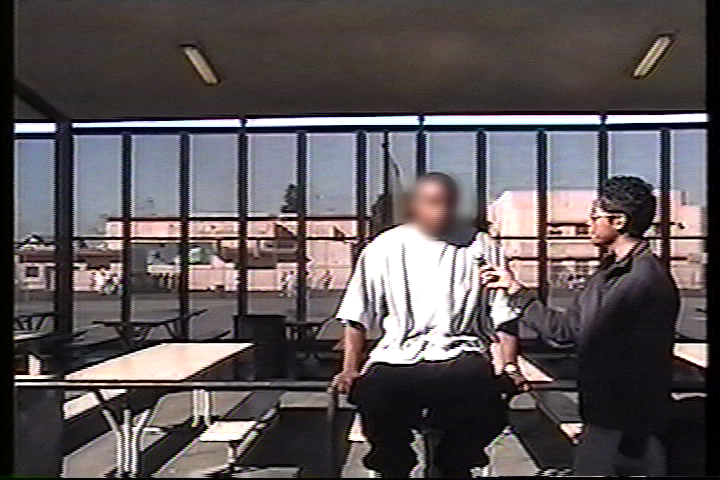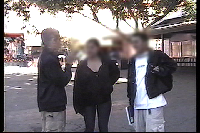|
|
|
|||
|
|
|
|
|
|
|
|
Contact Information: |
|||
|
Blog:
Parenting With The Mind (Without Losing Your Heart) http://larabeaty.wordpress.com |
|
LaGuardia Community CollegeCity University of New
York
|
|
|
|
|
Research: |
|||
|
|
|
My research is about student-school relationships, and I approach it from every angle I can - the theoretical, the methodological, and the practical.
There is a lot of research that attempts to examine how school variables or student variables affect outcomes like graduation, retention, and grades, but too much of this research does not try to understand the complexity of student lives. Controlling conditions and reducing complex systems to chartable numbers removes the human from psychology. New theory is needed. Student-school relationships are dynamic entities that develop over time as products of the full history and emergent qualitites of social-material contexts. Cultural-historical activity theory shapes the understand of this dynamic connection between social relations and academic performance . Properly
organized learning results in mental development and sets in motion a
variety of developmental processes that would that would be impossible
apart from learning.
Lev Vygotsky, Interaction Between Learning and Development, 1935 (from Cole, John-Steiner, Scribner, & Souberman, 1978)  Methods
are needed that will allow complexity to become visible. Part of this
is an examination of the potential of video production to convey unique
aspects of human activity. This
method has the possibility of concretely
capturing people's relations when that person records the
contexts in which they are emersed. Comparing and combining this with
other methods is expected to make a more complex understanding possible. Methods
are needed that will allow complexity to become visible. Part of this
is an examination of the potential of video production to convey unique
aspects of human activity. This
method has the possibility of concretely
capturing people's relations when that person records the
contexts in which they are emersed. Comparing and combining this with
other methods is expected to make a more complex understanding possible.Student-made videos show how camera operators relate to the activity around them and how well they "communicate" with the medium. In the process of producing videos, the "participation" of material and social contexts become uniquely visible, and by noting the changes from one moment to the next, learning and development become visible microgenetically. An intricate dance emerges between the camera operator and events occuring in front of the camera, which shows a world of missed moments and invisible successes that begin to connect and explain long term performance. Video production has the potential to change students, and it is in creating change that developmental processes can truly be studied. As a medium, video offers unique opportunities for changing student-school relationships and for reflecting on experiences. The process of recording leads to new ways of interacting with familiar people and places, and the process of editing facilitates the transformation of objects and events into symbols that can be manipulated, affording similar but distinct processes as writing. Changing student experiences in a meaningful way takes more than playing with a camera however. The Student Experiences Research Group (SERG) was created as a way to initiate deeper developmental processes. Community college students are invited to design, implement, and analyze research about student experiences while simulataneously studying themselves. This project allows progress in all these directions and offers the potential for new directions. It attempts to creat change while studying it, using the new knowledge to create additional changes. The philosophers have only interpreted the world, in various ways; the point, however, is to change it.
Karl Marx, Thesis on Feuerbach, 1845 (from Marx & Engels, 1964)  
|
|
 |
|
|
||||
 |
Beaty, L. M. (2013). Confronting school’s contradictions with video: Youth’s need of agency for ontological development. Outlines: Critical Practice Studies, 14(1), 4-25. Available at http://ojs.statsbiblioteket.dk/index.php/outlines/index. Pierre-Louis, J., Straughn-Williams, M., Okomba, A., & Beaty, L. (2012). Evolving mechanisms, processes, and approaches: A story of a community college success. Solving Social Issues Through Multicultural Experiences: 20th Anniversary Conference Monograph Series, Available at http://www.naaas.org/2012monograph.pdf. Beaty, L. M. (2009). Urban Youth and The Pursuit of Literacy Through Video Production. 41st Annual Meeting of the New England Educational Research Organization Portsmouth, NH. Download pdf file Beaty, L. M. (2008). Watching transformation in informant-made videos. In M. Downing and L. Tenney (Eds.), Video vision: Changing the culture of social science research. New Castle, UK: Cambridge Scholars Publishing. 2008 Download pdf file Beaty, L. M. (2007). Concept Development in Action: Adolescent Development in One Student-Made Video From a Vygotskian Perspective. American Educational Research Association's 2007 Annual Meeting, Chicago, IL. Download pdf file. Beaty, L. M. (2006). Transcending the prototype of high school video production: Illicit activity, forgotten directions, and invisible processes as a guid for teachers. 27th Anual Ethnography in Education Research Forum, Philadelphia, PA. Download pdf file "Give me space!" Situated video production and high school social relations Unpublished doctoral dissertation, City University of New York Graduate Center, 2005. View dissertation [Review of the book A critical guide to literacy, video production, and social change,] by Steven Goodman, in Anthropology and Education Quarterly, 34 (4), 2003. |
|
||
| |
The production of
ideas, of conceptions, of consciousness, is at first directly
interwoven with the material activity and the material intercourse of
men, the language of real life. . . . Life is not determined by
consciousness, but consciousness by life.
Karl Marx, The German Ideology, 1845 (from Marxists.org/archive) |
Last Updated 8/28/15 |